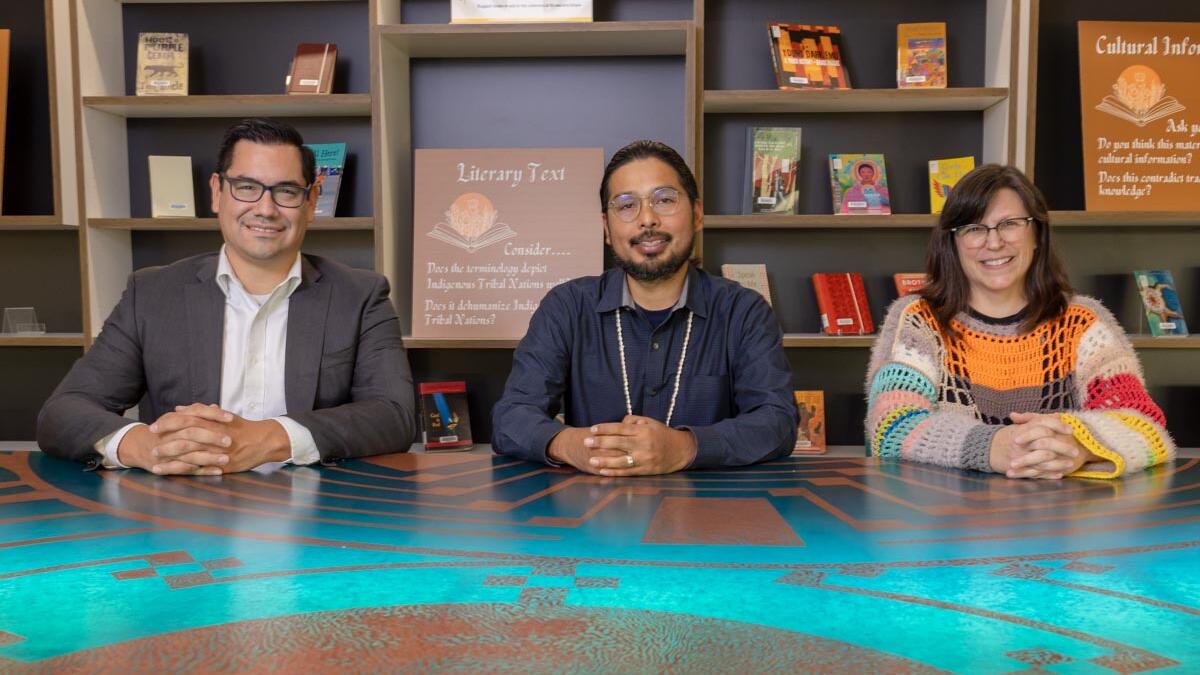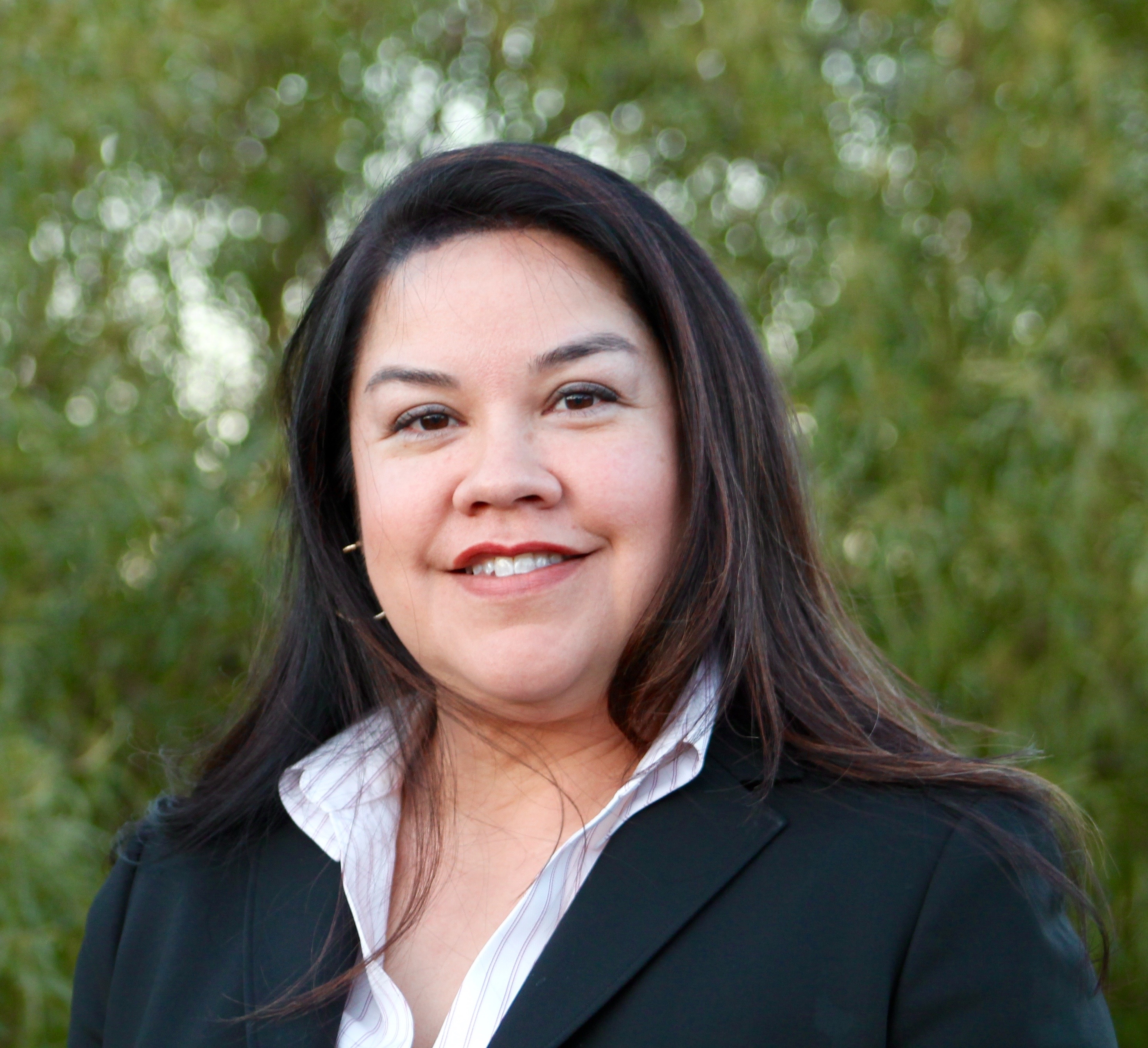Labriola Center receives $1M from Mellon Foundation for 'Firekeepers' initiative

Several years ago, when Alexander Soto (Tohono O’odham), director of the Labriola National American Indian Data Center at the ASU Library, facilitated community-driven archives workshops, the need to create a new model that allows tribal nations to actively engage in creating their archives became apparent.
“What I learned from community-driven archives is that our grandparents, aunties and elders are all archivists without knowing it. They hold family and community histories in photos and recordings,” said Soto. “As Indigenous people, we understand that our stories need protection to maintain their power. Indigenous ways of knowing are important sources of knowledge.”
Now, a new project to build archives partnerships with Arizona’s tribal nations has found support from the nation’s largest arts and humanities foundation. The Labriola Center was recently awarded a $1 million grant from the Mellon Foundation for “Firekeepers: Building Archival Data Sovereignty through Indigenous Memory Keeping.” The three-year project will allow the center to better support tribal nations that are seeking to establish archival collections.
A principal investigator on the project, Soto will lead a team to build best practices that allow Arizona State University to engage with tribal nations as equals in a reciprocal process of designing archives that meet their needs.
“This is what archival data sovereignty is, and it’s important because this represents a shift from the power dynamics of the past, when non-tribal cultural heritage institutions extracted Indigenous knowledge and information without any benefit to those communities,” explained Soto. “The grant allows the Labriola Center to fuse Indigenous values and protocols associated with memory keeping into archival work.”
Working with the Hia-Ced O’odham
The project will focus first on a partnership with the Hia-Ced O’odham and their attempts to gain federal recognition. The community holds archival materials like photographs, family stories, maps and oral histories that document Hia-Ced O’odham history.
Christina Andrews, chairwoman Hia-Ced O’odham
“This assistance will help us on our quest for federal recognition by preserving the voices of our elders in terms of the Hia-Ced O'odham language, culture, sacred sites, sacred ceremonies, land, water, animals and our nomadic way of life,” said Christina Andrews, chairwoman of Hia-Ced O’odham. “Although preserving and speaking our language is not a requirement for federal acknowledgement, it may document an ongoing awareness of our peoplehood, as well as a history of maintaining a relationship with our land (Ajo, Quitobaquito, Sonoita). Moreover, the project may, depending on what is recorded, provide Congress evidential proof that the U.S. has a trust responsibility to the Hia-Ced O'odham that it has been remiss in fulfilling.”
The Labriola Center provided training to Hia-Ced O’odham community members about arranging, describing and preserving materials, but more work must be done to determine the intellectual and cultural property rights of the tribe’s community archives.
Andrews added, “I hope at the end of this project, the Hia-Ced O'odham will have a framework in how to share, and at the same time, have oversight and ownership over our archive. I also hope that what is formalized legally and datawise can be expanded and shared to help other tribes gain federal recognition and/or have oversight over their language, culture and history.”
Collaborating with the Sandra Day O'Connor College of Law
A key component of the project is the collaboration with the Indian Legal Program at ASU"s Sandra Day O’Connor College of Law.
“When people think of laws governing data and information, they usually think of federal intellectual property laws — copyrights, trademarks, patents. Most people don’t realize that tribal nations have always maintained their own laws to govern knowledge and culture,” Trevor Reed (Hopi), associate professor of law at the Sandra Day O'Connor College of Law explained. “Our job is to build legal infrastructure for Indigenous community archives that weave together both of these strands of law to meet the communities’ goals for protecting and promoting culture and knowledge.”
Reed, a co-principal investigator on the project, teaches courses on property, intellectual property and federal Indian law. He will lead a team of graduate students to develop templates and license agreements that respect and honor Indigenous intellectual property and cultural property laws as well as strengthen ownership of tribal archival materials.
“Our team will work with our partner communities to learn and understand the kinds of laws, protocols and standards of care they use when handling, storing and sharing different types of knowledge and data,” said Reed.
By the end of the project, the model legal agreements, codes and policies created could be adapted to other contexts and meet the needs of many tribal nations. “With the help of community stakeholders, these rules and standards will be translated into legal codes, terms of use, licenses and other kinds of agreements that will form the structural backbone for the archive and its interfaces with the community and the public,” Reed explained. “We hope these kinds of legal materials will function as a model for other community-driven archives going forward.”
Strengthening resources for Indigenous communities
For ASU and Arizona, this project holds special significance.
"It is an honor to have the Mellon Foundation strengthen tribal sovereignty by its investment in the Labriola National American Indian Data Center. ASU is committed to assisting tribal nations in securing control of their histories, stories and data in a way that is culturally appropriate and sustainable for future generations of Indigenous peoples," said Jacob Moore, associate vice president of tribal relations.
This award follows previous recognition from the Mellon Foundation. In 2017, the Community-Driven Archives (CDA) Initiative led by Nancy Godoy received a grant to develop the CDA framework. The Labriola Center has since adopted and expanded these methods for archival engagements with Arizona tribal nations.
“Nurturing respectful and reciprocal relationships with tribal nations in Arizona and the region is aligned with the ASU Charter, and supporting the Firekeepers project furthers ASU Library's actualization of our Indigenous land acknowledgement by helping to foster Indigenous data sovereignty,” said Lorrie McAllister, associate university librarian for collections services and analysis, and co-principal investigator on the project.
As the only Indigenous-led library center within a doctoral research university in the United States, the Labriola Center celebrates and critically engages with American Indian and Indigenous scholarly works and creative writing.
“The ASU Library aspires to connect with the communities in which we serve, and we have a special obligation to do so because we are so richly an Indigenous state,” said Jim O’Donnell university librarian. “This grant will provide the opportunity for the Labriola Center to transform archival work and partnerships with tribal nations.”
For Soto, this project is one more step in advancing the Labriola Center’s mission and vision.
“As a Tohono O’odham, I am grateful for the opportunity to start this partnership with O’odham communities,” said Soto. “I am also looking forward to demonstrating the importance of Indigenous librarians in cultural revitalization. I believe it will be a model for non-tribal cultural heritage institutions to reconcile their relationships with tribal nations. This initiative will show archives as a means of culture keeping. To me, I view it as an extension of my O’odham himdag (way of life).”
Top photo: Trevor Reed (Hopi), Alexander Soto (Tohono O’odham) and Lorrie McAllister at the Labriola Center inside Hayden Library. Photo courtesy ASU
More Law, journalism and politics
Spring break trip to Hawaiʻi provides insight into Indigenous law
A group of Arizona State University law students spent a week in Hawaiʻi for spring break. And while they did take in some of the sites, sounds and tastes of the tropical destination, the trip…

LA journalists and officials gather to connect and salute fire coverage
Recognition of Los Angeles-area media coverage of the region’s January wildfires was the primary message as hundreds gathered at ASU California Center Broadway for an annual convening of journalists…

A new twist on fantasy sports brought on by ASU ties
A new fantasy sports gaming app is taking traditional fantasy sports and mixing them with a strategic, territory-based twist.Maptasy Sports started as a passion project for Arizona State University…


